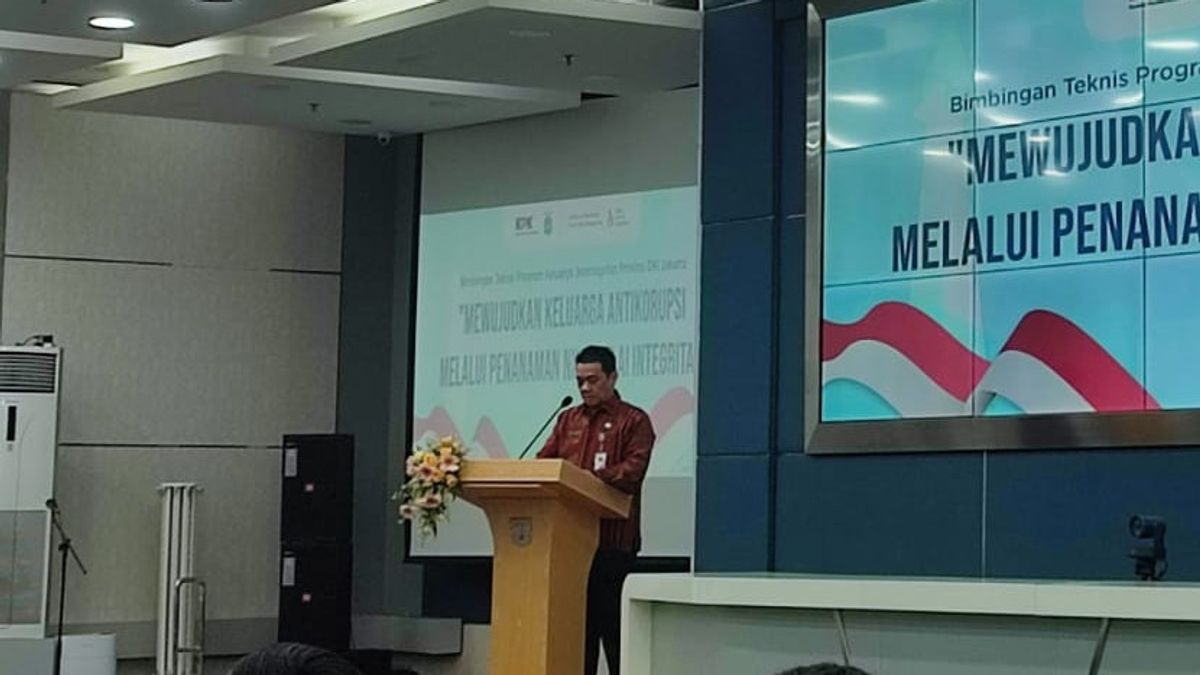JAKARTA - The DKI Jakarta DPRD is worried that the Jakarta Provincial Government's plan to set a tariff for public transportation integration of Rp. 10,000 will actually be enjoyed more by residents outside Jakarta than residents of DKI itself.
Responding to this, Deputy Governor of DKI Jakarta Ahmad Riza Patria said that the policy of using public transportation, especially in Jakarta which is the center of the Jabodetabek agglomeration area, cannot be made only for the people of Jakarta itself.
"Apart from those who enjoy not all residents of Jakarta, yes, we are the same country and cannot be divided. Everyone who uses public transportation in Jakarta, regardless of regional background, profession, is all treated the same," Riza told reporters, Friday, 18 March.
After all, so far, the public transportation system in Jakarta and other big cities in the world, in general, is still subsidized by the government. Thus, the transportation integration tariff plan becomes a natural thing.
Furthermore, Riza emphasized that the policy set by the DKI Provincial Government would still prioritize the best service for its citizens even though transportation subsidies will be reduced later.
"We are looking for the best formula to reduce subsidies but still provide the best service to the community," he said.
It is known that the DKI Jakarta Provincial Government plans to integrate travel fares using public transportation, namely Transjakarta, MRT Jakarta and LRT Jakarta with a nominal value of Rp. 10,000.
The DPRD questioned the value of benefits for the DKI Provincial Government and the people of Jakarta if public transportation fares were integrated. Considering that currently the amount of transportation fares for the three modes is still supported by subsidies from the DKI Regional Budget.
Based on the calculations of the DKI Provincial Government, in 2021 the profit of Transjakarta, MRT, and LRT on ticket revenues is Rp. 292 billion. If the integration tariff has been applied, the income of the three modes will be minus IDR 4 billion.
When the income of transportation managers decreases, it will automatically affect the burden of subsidies or public service obligations (PSO) given by the DKI Provincial Government.
What is also a problem, said Member of Commission B of the DKI DPRD, Manuara Siahaan, is whether the DKI Provincial Government can ensure that the beneficiaries of transportation integration are dominated by Jakarta residents.
"Who is the largest beneficiary of this PSO? The data presented shows that in fact the largest beneficiary is people who live outside DKI Jakarta. This means, if later the PSO is funded by the APBD, because the largest flow will be from Jabodetabek," said Manuara.
The English, Chinese, Japanese, Arabic, and French versions are automatically generated by the AI. So there may still be inaccuracies in translating, please always see Indonesian as our main language. (system supported by DigitalSiber.id)









